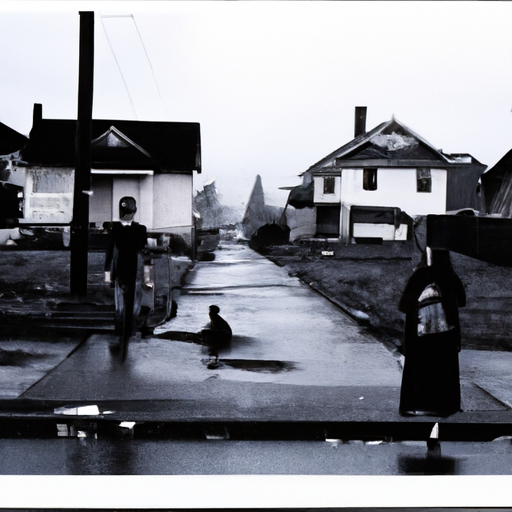Understanding the Ripple Effects of the Canadian Opioid Crisis
The transformative impact of the opioid crisis on Canadian communities large and small continues to present complex and pressing challenges to our civic and community leaders. Vernon, a small city in British Columbia, has not been spared from the reach of the crisis. This post seeks to dissect the various dimensions of the opioid predicament, exploring its consequences and efforts made to mitigate them.
The Impact and Ramifications of the Opioid Crisis
Extraordinarily, the opioid crisis has not only escalated overdose deaths in cities like Vernon but also stimulated a surge in crime rates and homelessness. The intersection of opioid addiction with these social issues creates a toxic, self-perpetuating cycle that aggravates the crisis further.
The Nexus between opioids and Homelessness
Individuals suffering from addiction are more likely to lose their homes due to the financial strain of fueling their drug dependency. In response, communities struggle to provide adequate support structures, such as shelters and subsidized housing. Sadly, this fuels a rise in homelessness, which in turn increases vulnerability to opioid addiction — a vicious cycle indeed.
The Crime Woes
Further, the opioid crisis has implications for community safety. Often, drug dependency can lead individuals to resort to crime to feed their addiction, causing a rise in petty theft, break-ins, and other illegal activities. This not only threatens the peace and safety of the local community but also overburdens the local law enforcement and justice systems.
Strategies In Place To Tackle The Opioid Crisis
Despite the pervasive damage wrought by the opioid crisis, efforts to combat it are in play. Civic bodies, community groups, and healthcare providers are joining forces around a multi-pronged strategy that includes:
- Promotion and distribution of naloxone, a life-saving drug that can reverse an opioid overdose.
- Establishing supervised drug use sites to reduce fatalities and offer channels towards rehabilitation.
- Conscious efforts to decriminalize drug use and treat it as a public health issue, not a criminal one.
- Supporting opioid class action lawsuits against pharmaceutical companies as a means to hold entities accountable that played roles in precipitating the crisis.
Naloxone and Supervised Use Sites
Naloxone distribution has been crucial in curbing overdose deaths. This drug acts by swiftly reversing the effects of opioids, thus preventing fatalities if administered promptly. Moreover, supervised use sites provide a controlled environment for drug use, which not only reduces the risk of overdoses but also provides a channel to guide individuals to treatment and rehabilitation.
Decriminalization, Opioid Class Action and Accountability
Moving towards a more compassionate and pragmatic framework, there’s a growing movement to decriminalize drug use and instead treat it as a public health issue. Beyond just putting a stop to punitive measures, this change potentially offers a path for those struggling with opioid addiction to find help rather than end up incarcerated.
Lastly, opioid class action lawsuits aim to hold accountable pharmaceutical companies thought to have fueled the crisis by aggressive marketing of prescription opioids. These lawsuits seek to bring some measure of justice to the countless lives impacted while also sending a strong message to other entities about their ethical responsibilities.
In Conclusion…
The opioid crisis in Canada is a complex issue with far-reaching consequences. It exacerbates homelessness, escalates crime rates and puts immense pressure on our healthcare systems. However, with effective strategies like naloxone distribution, supervised drug use sites, decriminalization of drug use, and opioid class action lawsuits, there is hope for ameliorating the crisis. As civic and community leaders, it falls upon us to soul search and innovate impactful, empathetic approaches to this crisis.
